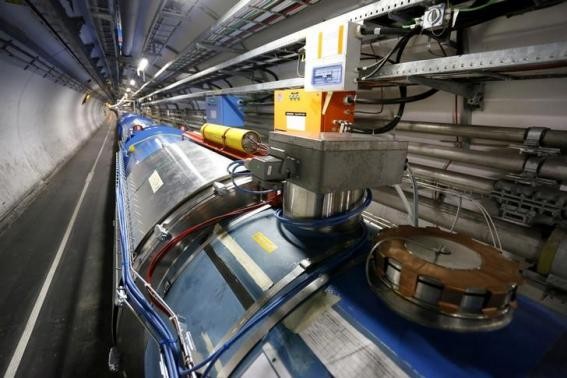After being put to rest for two years for power upgrade purposes, the globe's most advanced and biggest particle collider was, once again, put into action this week. Unfortunately, an electrical issue hampered the grand reboot of the Large Hadron Collider.
The delay was brought about by an "intermittent short circuit" in one of the magnet circuits; however, an investigation has already been commenced regarding the matter. "It is a well understood issue, but one that could take time to resolve since it is in a cold section of the machine and repair may therefore require warming up and re-cooling after repair," CERN reported.
Frédérick Bordry, CERN Accelerator's Director, said that any kind of glitch that could impact a cryogenic machine is a positive time prolonging factor. "So what would have taken hours in a warm machine could end up taking us weeks," he said.
This supercooled electromagnets consisting of a 17-mile circumference has to go through a long process of cooling down before its made capable for relativistic particles maintenance within a collimated and tightly-controlled beam. The ring, which operates at a temperature that approaches absolute zero, needs lots of time and energy to warm up and cool back especially when repairs are required.
CERN is estimating that the delay will be between a few days to a number of weeks, but with LHC's purpose in unveiling the mysteries of quantum mechanics, time, and space, this is only a minor break along the road, Rolf Heuer, CERN Director General said.
"In the grand scheme of things, a few weeks delay in humankind's quest to understand our universe is little more than the blink of an eye," the BBC wrote.



























